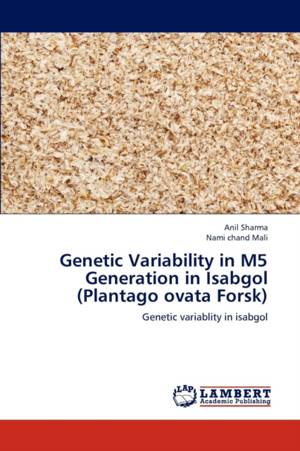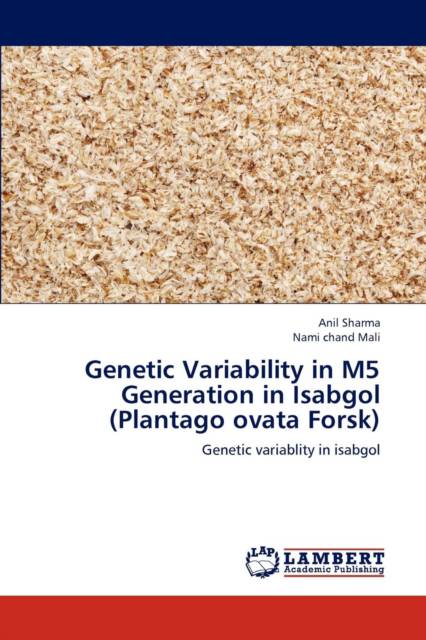
Bedankt voor het vertrouwen het afgelopen jaar! Om jou te bedanken bieden we GRATIS verzending (in België) aan op alles gedurende de hele maand januari.
- Afhalen na 1 uur in een winkel met voorraad
- In januari gratis thuislevering in België
- Ruim aanbod met 7 miljoen producten
Bedankt voor het vertrouwen het afgelopen jaar! Om jou te bedanken bieden we GRATIS verzending (in België) aan op alles gedurende de hele maand januari.
- Afhalen na 1 uur in een winkel met voorraad
- In januari gratis thuislevering in België
- Ruim aanbod met 7 miljoen producten
Zoeken
Genetic Variability in M5 Generation in Isabgol (Plantago ovata Forsk)
Genetic variablity in isabgol
Anil Sharma, Nami chand Mali
Paperback | Engels
€ 63,45
+ 126 punten
Omschrijving
Isabgol belongs to the family Plantaginaceae and genus Plantago with chromosome number 2n=8)). The seed husk of this plant is commonly called Psyllium . The seed husk has the property of absorbing and retaining water which accounts for its utility in checking constipation, diarrhea and intestinal irritation. It is diuretic, alleviates kidney and bladder complaints, gonorrhea, arthritis and hemorrhoids .There is an ample scope to increase the productivity of isabgol through genetic improvement. The genetic improvement is primarily depends upon the nature and magnitude of variability in plant characters, overall genetic diversity among genotypes and association between characters. The limited existing genetic variability is major bottleneck for the improvement of the isabgol .Mutation breeding is ultimate source of variation. It provides raw material upon which other factor of evaluation act and therefore all the new species ultimately arises from the mutation.
Specificaties
Betrokkenen
- Auteur(s):
- Uitgeverij:
Inhoud
- Aantal bladzijden:
- 88
- Taal:
- Engels
Eigenschappen
- Productcode (EAN):
- 9783659246609
- Verschijningsdatum:
- 13/12/2012
- Uitvoering:
- Paperback
- Afmetingen:
- 150 mm x 220 mm
- Gewicht:
- 141 g

Alleen bij Standaard Boekhandel
+ 126 punten op je klantenkaart van Standaard Boekhandel
Beoordelingen
We publiceren alleen reviews die voldoen aan de voorwaarden voor reviews. Bekijk onze voorwaarden voor reviews.









